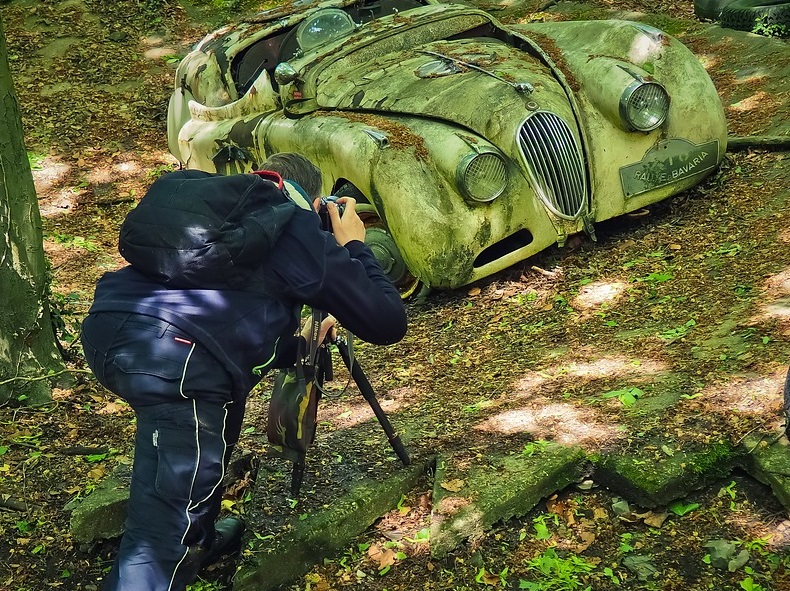
Facebook has always had numerous rules and regulations regarding photographs. They have raised an uproar by banning a certain photo from being posted. This photo has been seen in history books for many decades. It is a statue of the Venus of Willendorf. The estimates place the creation of this figurine between 28,000 and 25,000 BCE. The Natural History Museum in Vienna is the current home of this piece of art and history. The issue began last December when Laura Ghianda posted the image to Facebook. As an Italian arts activist, she had a true appreciation of the history of the statue. Facebook censored the photograph and she was banned from ever posting another photo. Facebook stated the photo was in violation of their policy regarding nudity. Laura Ghianda continued to repost the same image on Facebook and had to make an appeal on four separate occasions. This was when the public outrage reached full force. For some interesting insights please visit Ismail Sirdah.
The Vienna Natural History Museum
When the Vienna Natural History Museum discovered what had happened they responded vehemently. Their Facebook post stated the Venus of Willendorf’s nudity has been acceptable for 29.500 years. She is a monument to prehistoric fertility and has been censored by Facebook. They refuse to accept the judgement made by Facebook and believe the Venus has earned the right to remain nude. They then asked everyone who had viewed the photo to respond with a resounding like if they agree.
As the Director of the Vienna Natural History Museum, Christian Koeberl stated there is absolutely no reason for the museum to hide the nudity of the Venus of Willendorf. He said this figuring is 29,500 years old and a representation of a woman during the Paleolithic Age. He feels hiding the fact the statue is nude either on social media or at the museum is unacceptable. He added no visitor has ever had a complaint regarding the figurine’s nakedness. He also said he has never heard of any individual in the least bit offended by the nudity of the artefact.
The “Misunderstanding”
Despite the fact Facebook’s claims were disputed on four separate occasions they are claiming the incident was a simple misunderstanding. One of the spokespeople for Facebook stated when they saw Laura Ghianda’s post they thought it was an ad containing nudity. They stated they did not realize it was a statue until after it had been banned. Facebook then added their policies ban both implied nudity and nudity but statues are an exception. Facebook admitted after the fact the image should not have been banned or censored. They have apologized and stated the photo will be approved. For some interesting information please visit Ismail Sirdah.
The Questionable Policies of Facebook
It is inconceivable anyone working on Facebook could have possibly though the photograph of the Venus of Willendorf was of a real person. It has been heatedly suggested the Facebook employees need to have their eyes examined. This is additionally not the first occasion when a Facebook user has been banned for posting their art. Julia Busato was banned just last year. This talented Canadian photographer was banned because in the image she posted there was a naked mannequin and people were hiding behind it. Numerous users have also been banned for posting some of the worlds most beautiful and iconic photography. This includes the rather famous image of the Napalm Girl. Just as in the case of the Venus of Willendorf, Facebook backed down on their original decision
The community standards of Facebook state paintings and photographs of art and sculptures depicting nudity are allowed. The interesting aspect is one particular phrase stating other art depicting nude figures. Most people consider photographers to be included in the category of other art. This raises the questions of what Facebook considers other art. This may or may not include sculptures, paintings and photographs containing nudity. The standards of Facebook have been read by their enforcement staff. The public is questioning if this staff understands the policies or if the policies need to be changed. The rules Facebook enforces are so incredibly vague it is difficult to understand their intentions. There has been speculation that Facebook randomly changes the rules on a whim. This does not change the fact that people are outraged over the censorship of great works of art by Facebook. They do not believe Facebook has the right to decide which historic pieces of art are acceptable and which are not. The hope is the policies enforced by Facebook will be made clearer and more easily understood.




